
PLANT SOIL AND ENVIRONMENT
Scope & Guideline
Advancing Sustainable Practices Through Soil Science Insights.
Introduction
Aims and Scopes
- Plant-Soil Interactions:
Research on the dynamic interactions between plants and soil, including nutrient uptake, microbial activity, and soil health. - Stress Responses in Plants:
Studies that explore how plants respond to various stressors such as drought, salinity, heavy metals, and climate change, aiming to enhance resilience and productivity. - Sustainable Agricultural Practices:
Innovative practices and technologies that promote sustainable agriculture, including the use of biostimulants, organic amendments, and efficient irrigation techniques. - Soil Remediation Techniques:
Research focusing on bioremediation and the use of amendments like biochar to mitigate soil contamination and enhance soil quality. - Nutrient Management:
Investigations into optimal fertilization strategies, including the use of slow-release fertilizers and the impact of various nutrient sources on crop yield and soil health. - Crop Physiology and Yield Enhancement:
Examinations of physiological processes in crops to improve yield and quality, incorporating factors such as light, temperature, and water availability. - Ecological Risk Assessments:
Evaluations of the ecological impacts of agricultural practices, including assessments of heavy metal contamination and pesticide effects on soil and plant health.
Trending and Emerging
- Biostimulants and Organic Amendments:
There is a growing focus on the use of biostimulants and organic amendments, such as biochar and melatonin, to enhance plant growth and resilience against environmental stresses. - Climate Change Adaptation Strategies:
Research is increasingly centered on developing strategies for crop adaptation to climate change, including studies on the physiological responses of plants to elevated CO2 and temperature variations. - Soil Microbial Ecology:
Emerging themes emphasize the importance of soil microbial communities in nutrient cycling, soil health, and plant interactions, reflecting a trend towards understanding soil as a living ecosystem. - Integrated Water Management:
Innovative approaches to irrigation and water management are trending, particularly in the context of drought-prone regions, highlighting the need for efficient water use in agriculture. - Precision Agriculture Technologies:
The integration of technologies such as remote sensing and data analytics into agricultural practices is gaining momentum, aiming to improve crop management and resource efficiency. - Heavy Metal Remediation:
Research on the remediation of heavy metal-contaminated soils is increasing, focusing on sustainable practices that utilize plant-based strategies for detoxification.
Declining or Waning
- Traditional Chemical Fertilizers:
Research focusing on conventional chemical fertilizers is waning as there is a growing emphasis on sustainable and organic alternatives that enhance soil health without the adverse effects associated with chemical inputs. - Monoculture Practices:
The study of monoculture systems is decreasing as more research is directed towards crop rotation and intercropping strategies that promote biodiversity and enhance soil health. - Short-term Yield Studies:
The focus on short-term yield results is less prominent now, with a shift towards long-term sustainability and ecological impact assessments of agricultural practices. - Pesticide Efficacy Studies:
Interest in the efficacy of chemical pesticides is declining as there is a stronger push for integrated pest management and organic farming practices that prioritize ecological balance. - Soil Tillage Practices:
Research on traditional tillage methods is declining as conservation tillage and no-till practices gain traction for their benefits to soil structure and health.
Similar Journals
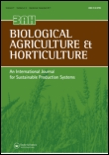
BIOLOGICAL AGRICULTURE & HORTICULTURE
Transforming agricultural science through impactful research.Biological Agriculture & Horticulture, published by Taylor & Francis Ltd, stands as a pivotal journal in the realms of agronomy and horticultural sciences. With an ISSN of 0144-8765 and an E-ISSN of 2165-0616, this esteemed journal has been disseminating vital research since its inception in 1982 and continues to publish leading studies through 2024. It currently boasts a commendable Q2 quartile ranking in both Agronomy and Crop Science as well as Horticulture, placing it in a prominent position within the academic community. With Scopus rankings indicating a 70th percentile in Horticulture and a 62nd percentile in Agronomy and Crop Science, the journal is a key resource for researchers, professionals, and students focused on innovative practices and scientific advancements in biological agriculture. While the journal is not open access, it remains an invaluable repository for cutting-edge research, methodologies, and reviews that push the boundaries of agricultural and horticultural sciences.
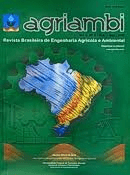
Revista Brasileira de Engenharia Agricola e Ambiental
Championing Open Access to Transformative Agricultural ResearchRevista Brasileira de Engenharia Agricola e Ambiental, published by the Universidade Federal de Campina Grande, serves as a pivotal platform for researchers and professionals in the fields of agricultural and biological sciences, agronomy, and environmental engineering. With an open-access policy since 2000, this journal aims to foster global dissemination of innovative research and practices, ensuring that high-quality findings are accessible to all. Operating in Brazil, it holds notable rankings, including Q2 in the categories of Agricultural and Biological Sciences (miscellaneous) and Agronomy and Crop Science, indicating its strong academic impact and influence within these fields. As of 2023, it ranks #68 out of 193 in Agricultural and Biological Sciences and #188 out of 406 in Agronomy and Crop Science, representing its commitment to advancing scientific knowledge. The journal primarily focuses on publishing studies that address challenges in agricultural engineering and environmental sustainability, making it an essential read for students, researchers, and professionals who are dedicated to innovation and excellence in these dynamic fields.
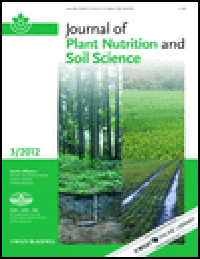
JOURNAL OF PLANT NUTRITION AND SOIL SCIENCE
Empowering researchers to cultivate excellence in agriculture.JOURNAL OF PLANT NUTRITION AND SOIL SCIENCE, published by WILEY-V C H VERLAG GMBH, stands as a premier platform in the field of agricultural and biological sciences, focusing specifically on the intricacies of plant nutrition and soil science. With an impressive impact factor and a respected Q1 category ranking in Plant Science and Q2 category ranking in Soil Science for 2023, this journal is essential for researchers and professionals seeking to advance their understanding and foster innovative practices in sustainable agriculture. The journal’s open access options ensure a broad dissemination of knowledge, appealing to a global audience and facilitating collaborative research efforts. Embracing a broad scope that extends from foundational science to cutting-edge research developments in soil health and nutrient management, the journal serves as a critical resource for both emerging scholars and established experts, reinforcing its pivotal role in addressing the challenges of food security and environmental sustainability. With years of convergence from 1996 to 2024, it remains committed to excellence in scholarly communication, providing a vital forum for the sharing of valuable insights and advancements in the field.

Zemdirbyste-Agriculture
Empowering the agricultural community through open access insights.Zemdirbyste-Agriculture is a prominent journal dedicated to advancing the field of agricultural sciences, with a particular focus on agronomy and crop science. Published by the Lithuanian Research Centre Agriculture & Forestry, this open access journal has been fostering knowledge sharing and scientific discourse since 2004, allowing researchers, professionals, and students unrestricted access to its content. Located in the beautiful country of Lithuania, specifically at Vytautas Magnus University, this journal plays a significant role in disseminating innovative research findings. With a 2023 Scopus ranking of #246 out of 406 in the category of Agricultural and Biological Sciences, Zemdirbyste-Agriculture falls within the Q3 quartile, reflecting its growing influence in the academic community. This journal, which has converged its publication focus from 2008 to 2023, aims to provide a platform for scientists to share their critical insights on agricultural practices, sustainability, and technological advancements in crop science, thereby contributing to the global discourse on food security and environmental health.
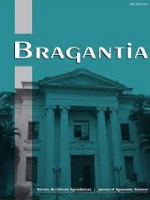
BRAGANTIA
Exploring Frontiers in Agricultural and Biological SciencesBRAGANTIA, published by the Instituto Agronômico, is a distinguished open access journal that has been a vital resource since its inception in 1977. With an ISSN of 0006-8705 and E-ISSN 1678-4499, this journal is recognized for its contributions to the field of Agricultural and Biological Sciences, where it currently holds a respectable Q2 ranking as of 2023. Additionally, BRAGANTIA is indexed in various databases, supporting its impact within Materials Science (Q3 ranking). Positioned in Brazil, the journal promotes the dissemination of high-quality research, aiming to bridge the gap between academia and practical applications in agricultural innovation and sustainability. Researchers, professionals, and students looking to keep abreast of recent advancements and their implications will find BRAGANTIA to be an indispensable platform for sharing and accessing vital agricultural knowledge.

Agrivita
Bridging knowledge gaps in agronomy and crop science.Agrivita is a distinguished, open-access journal dedicated to advancing research and knowledge in the fields of Agronomy and Crop Science. Published by Brawijaya University, Faculty of Agriculture, this journal has been providing a platform for high-quality scholarly articles since 2010. Located in the vibrant country of Indonesia, Agrivita plays a vital role in the exchange of innovative agricultural research, particularly within the Southeast Asian context. As of 2023, it holds a respectable Q3 ranking in its category, showcasing its commitment to scholarly excellence and visibility. With an increasing impact on the academic community, and its current Scopus rank placing it in the 48th percentile, Agrivita stands as a crucial resource for researchers, professionals, and students eager to deepen their understanding of crop science and agronomy. The journal's scope encompasses cutting-edge research that addresses both fundamental and applied aspects of agriculture, ensuring it remains relevant to today's pressing agricultural challenges. Its open access model enhances global accessibility, fostering a collaborative environment where diverse opinions and findings can converge.
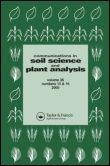
COMMUNICATIONS IN SOIL SCIENCE AND PLANT ANALYSIS
Exploring Innovative Solutions in Agronomy and Soil ScienceCOMMUNICATIONS IN SOIL SCIENCE AND PLANT ANALYSIS, published by Taylor & Francis Inc, is a prestigious journal dedicated to advancing research in the fields of agronomy, crop science, and soil science. Established in 1970, the journal has maintained a significant presence over the years, with a commitment to publishing high-quality, peer-reviewed articles that contribute to the understanding of soil and plant interactions. With an impressive Q2 ranking in both Agronomy and Soil Science, it positions itself as a vital resource for researchers, professionals, and students alike, keen on exploring innovative solutions to contemporary agricultural challenges. Although it currently does not provide open access, the journal ensures wide dissemination through its established subscription services. The journal's focus on empirical research, methodologies, and technological advancements in soil management and plant nutrition makes it an essential platform for disseminating knowledge and fostering discussions within the scientific community. Located in the heart of Philadelphia, USA, it remains a significant contributor to the global dialogue on sustainable agriculture and environmental stewardship.
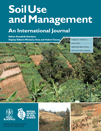
SOIL USE AND MANAGEMENT
Elevating research in agronomy and soil science.SOIL USE AND MANAGEMENT is a premier academic journal published by Wiley, focusing on the critical domains of Agronomy, Crop Science, Pollution, and Soil Science. With an ISSN of 0266-0032 and an E-ISSN of 1475-2743, the journal has established itself as a vital resource in the field since its inception in 1985. Operating from its U.S. headquarters in Hoboken, NJ, SOIL USE AND MANAGEMENT boasts impressive Q1 rankings across its relevant categories, indicating its standing in the top tier of research journals. Notably, it is ranked 48th out of 406 journals in Agronomy and Crop Science and holds an 88th percentile position, as well as a commendable rank of 26th out of 159 journals in Soil Science, underscoring its influence and reach. This journal serves as an essential platform for researchers, professionals, and students dedicated to sustainable soil management practices and understanding soil's role in agricultural productivity and environmental health. Although it does not offer Open Access, its rigorous peer-review process ensures the publication of high-quality original research, reviews, and case studies critical for advancing knowledge and practice in the field. This journal is crucial for anyone engaged in soil science and its related disciplines, encouraging innovative approaches to challenges facing soil use and management today.
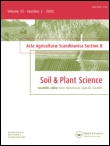
ACTA AGRICULTURAE SCANDINAVICA SECTION B-SOIL AND PLANT SCIENCE
Bridging Science and Practice in Agronomy and Soil ScienceACTA AGRICULTURAE SCANDINAVICA SECTION B-SOIL AND PLANT SCIENCE, published by Taylor & Francis AS, is a distinguished journal dedicated to the fields of Agronomy, Crop Science, and Soil Science. With an impressive impact factor, and categorized in Q2 for both Agronomy and Crop Science and Soil Science as of 2023, this journal is an essential resource for researchers, professionals, and students aiming to advance their understanding of soil-plant interactions and sustainable agricultural practices. Operating since 1992 and continuing through to 2024, ACTA aims to publish high-quality, peer-reviewed research that encourages the applicability of advanced scientific knowledge in real-world agricultural settings. While the journal is not open access, it remains widely accessible through institutional subscriptions, reflecting its commitment to disseminating essential findings and fostering innovation in soil and plant science worldwide. Nestled in the vibrant academic environment of Norway, ACTA AGRICULTURAE SCANDINAVICA serves as a key platform for nurturing groundbreaking research that informs sustainable agricultural policies and practices globally.

Gesunde Pflanzen
Advancing the Science of Plant HealthGesunde Pflanzen is a prestigious peer-reviewed journal published by Springer, based in Germany. Specializing in the fields of agricultural and biological sciences, this journal has established itself as an essential resource for researchers, professionals, and students interested in plant health and pathology. With an impressive impact factor in the Q2 category, ranking 73 out of 221 within the general agricultural and biological sciences field (67th percentile as of 2023), Gesunde Pflanzen offers invaluable insights into current trends, challenges, and breakthroughs in plant research. The journal has been consistently publishing academic contributions since its inception in 1974, fostering advancements in agricultural practices and promoting sustainable plant health management strategies. While the journal does not currently offer open access options, its rigorous peer-review process ensures that published articles maintain high standards of scientific integrity and relevance. Researchers and professionals in the field are encouraged to engage with this journal to stay abreast of the latest findings and methodologies shaping the future of agriculture.